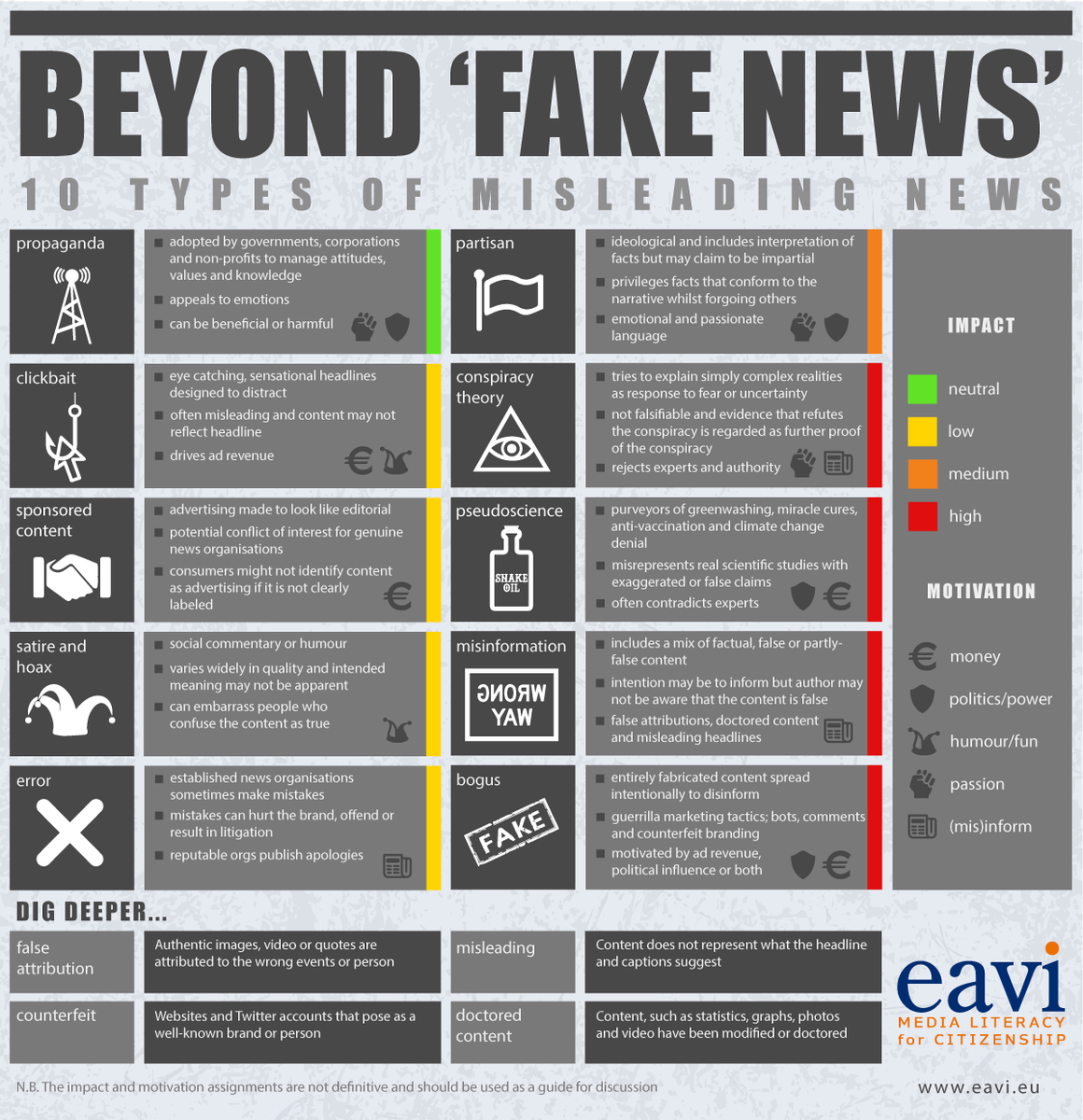
Hello fellow friends and followers, hope you all had a splendid Easter weekend and stayed safe! Previously in my other blog posts, I have talked about the 9 Elements of Digital Citizenship and this blog post touches on one of those nine things, Digital Literacy. For this weeks class we talked more about Digital Literacy and what it would look like within the our subject area and how it ties within the curriculum as well as touching on how it is used to combat fake news.
Fact or Fake?
In class we talked about the differences between something that is real on the internet compared to something that looks real but is actually fake. Fake News is defined as, “a type of hoax or deliberate spread of misinformation with the intent to mislead in order to gain financially or politically” which came from TRU Libraries. Throughout all of my years in high school we were always told to make sure our sources were credible. The one thing that they always told us NOT to use was Wikipedia. Other than that I did not really know much on what made a website fake or not until we talked about it in EDTC 300. While learning all of this recently, I did not know that it was so easy to create a fake profile.

Something else we talked about was the difference between disinformation and misinformation. Disinformation is defined as being “deliberately misleading or biased information; manipulated narrative or facts; propaganda” (Kelly, 2021). Misinformation is defined as being “false information that is spread, regardless of intent to mislead” (Kelly, 2021). These are two common terms that one should know when you are thinking about Digital Literacy and whether or not something would be true or not. When people are writing something and are intentionally making it false, they usually do so to lead the readers into believing what they said or to start controversy.

The Importance in Teaching It
When someone asks me why something should be taught, it has got to be my favourite thing to answer. I also say, how did you learn to read, you were taught, how did you learn anything, either someone taught you or you taught yourself. Teaching your students about Digital Literacy as well as teaching them to look for credible sources. Providing them with this

knowledge not only helps them with their school but as well as in the future whether it be with politics or anything to do with the news, etc. In the article, How do we teach students to identify fake news, it states, “Prioritize helping students develop investigative techniques.” This part of it is specifically important to the students who are in secondary school. When they are at this age, they tend to explore the internet more and use it for their schooling and to understand it at that next level. Although I say it is mostly important for the older students, it is still important to learn at a younger age as well.
Fake News and Digital Literacy is something that is going to be involved in society for a long time, if not forever. Thank you for tuning into this weeks blog post. Only a couple more classes left until the semester is over!
Ciera
References
Kelly, J. (2021, January 19). “Misinformation” vs. “Disinformation”: Get Informed On The Difference. Retrieved from https://www.dictionary.com/e/misinformation-vs-disinformation-get-informed-on-the-difference/
Hey, I really like the formatting of your post. It looks great! I truly do not think it is ever too early to begin teaching online safety to our students. This is something I have gathered over the years. As technology evolves, our students are exposed to it at a younger age. Society is constantly progressing in this way. I know my little cousins had phones and tablets long before I ever even thought of having those.
best body to body spa in indiranagar is izspa try today